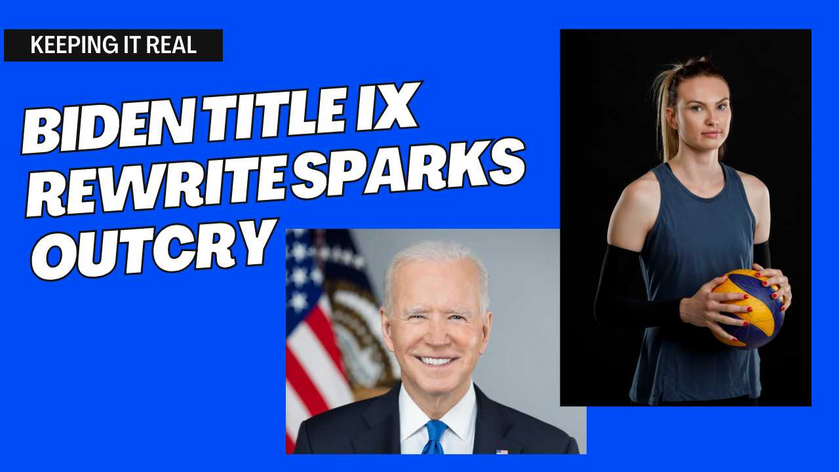WASHINGTON D.C. - Friday, the Biden administration unveiled its revamped Title IX guidelines. Notably absent from the revisions was any mention of transgender-identifying male athletes participating in women's sports, a contentious issue that has stirred nationwide debate.
Initially, the administration's draft proposal included a significant alteration that would have compelled federally funded educational institutions to permit males to compete on female sports teams unless they could prove it jeopardized student safety. This proposal would have shifted the burden of proof onto schools, potentially necessitating separate policies for each sport.
Support my independent journalism if you aren’t already. Become a paid subscriber for only $5 a month; you can quit at any time. I left my high paying job in the MSM to keep it real, help me to do that.
However, amid the backdrop of the 2024 presidential race, particularly with the looming contest against former President Donald Trump, the Biden administration chose to defer addressing the issue of transgender participation in women's sports. The timing of guidance on transgender sports remains uncertain, given the significant legal challenges surrounding the matter.
While the revised rule does not explicitly reference transgender athletes, it does extend protection to sexual orientation and gender identity, potentially paving the way for litigation against educational institutions that deny access to facilities such as bathrooms and locker rooms based on gender identity. Moreover, the language could facilitate legal challenges against schools that bar male students from competing against females, although the law does not explicitly define such actions as discriminatory.
Former Trump Education Secretary Betsy DeVos criticized the Biden administration's overhaul of Title IX, asserting that it undermines decades of protections for women and girls, replacing them with what she termed as "radical gender theory."
Friday's announcement also marks a reversal of Trump-era sexual assault rules, which rolled back some due-process protections for accused students and lowered the standard for finding a student guilty of sexual misconduct.
Under the new rule, investigators handling campus cases have the option to conduct hearings involving both parties or individual meetings where questions can be posed by one party to the other or witnesses.
The release of the new Title IX guidelines, which had faced multiple delays, signifies a significant development in the ongoing debate over gender equity in education. While the provisions related to women's sports have yet to be finalized, the revised rule has already stirred controversy, with critics arguing that it undermines due process rights and creates legal uncertainties for both students and institutions.




















